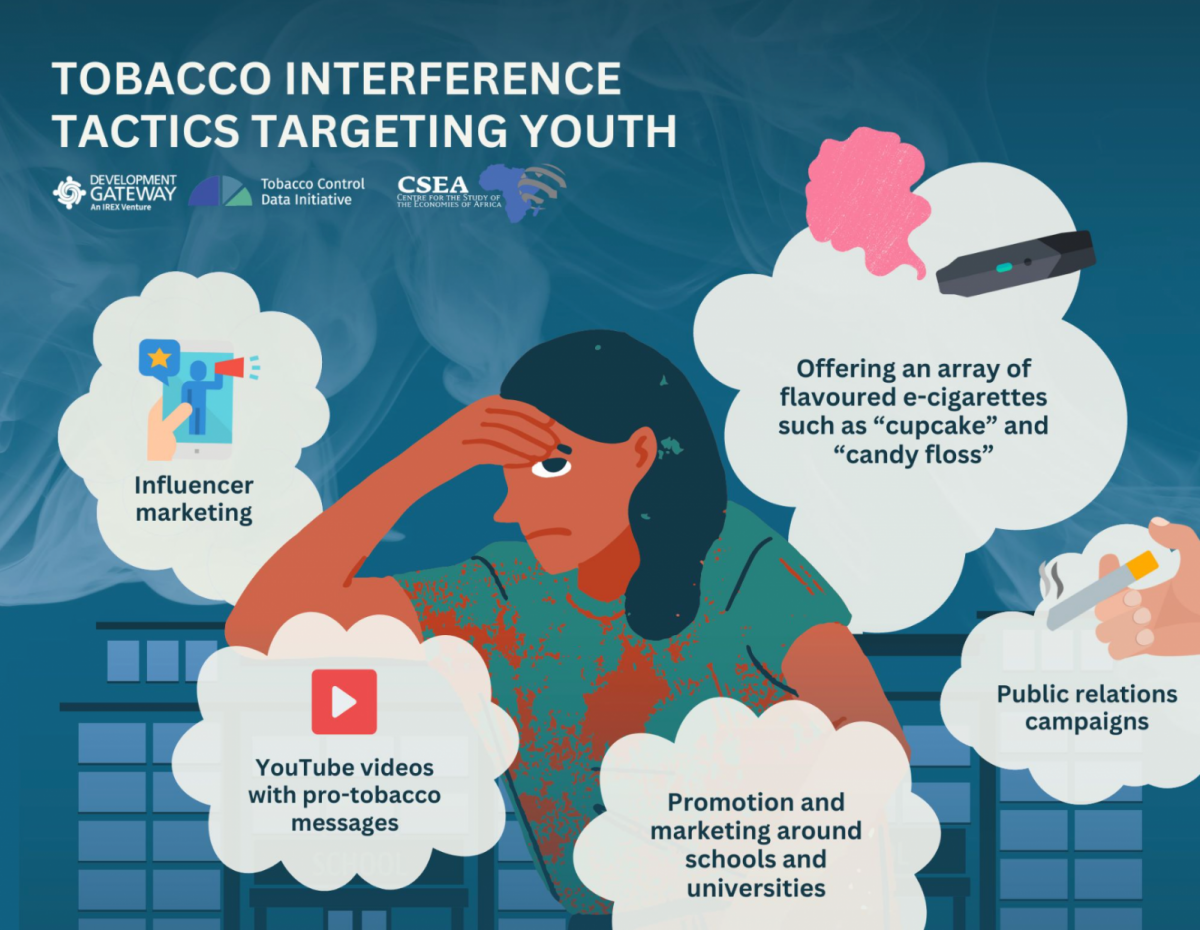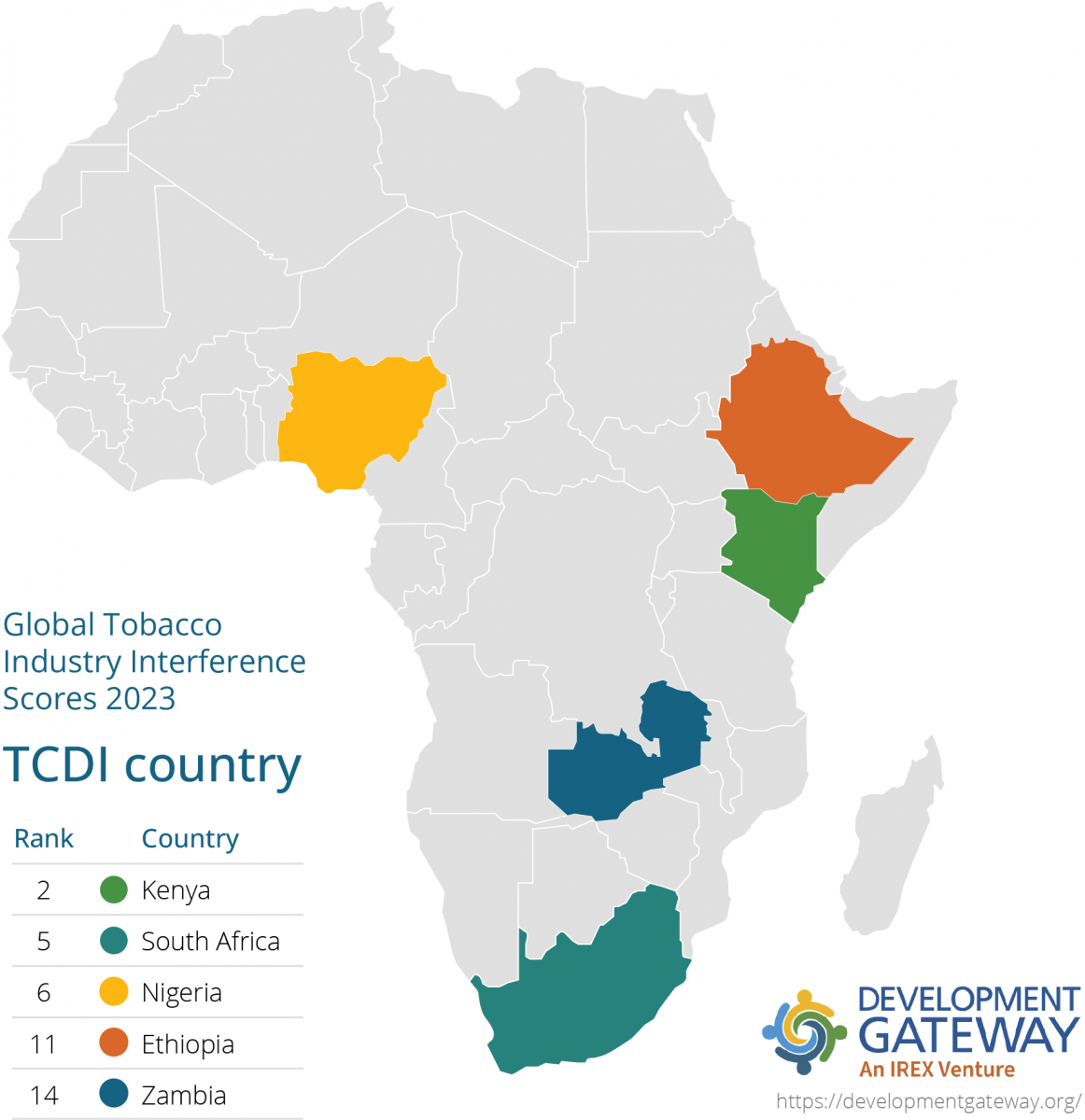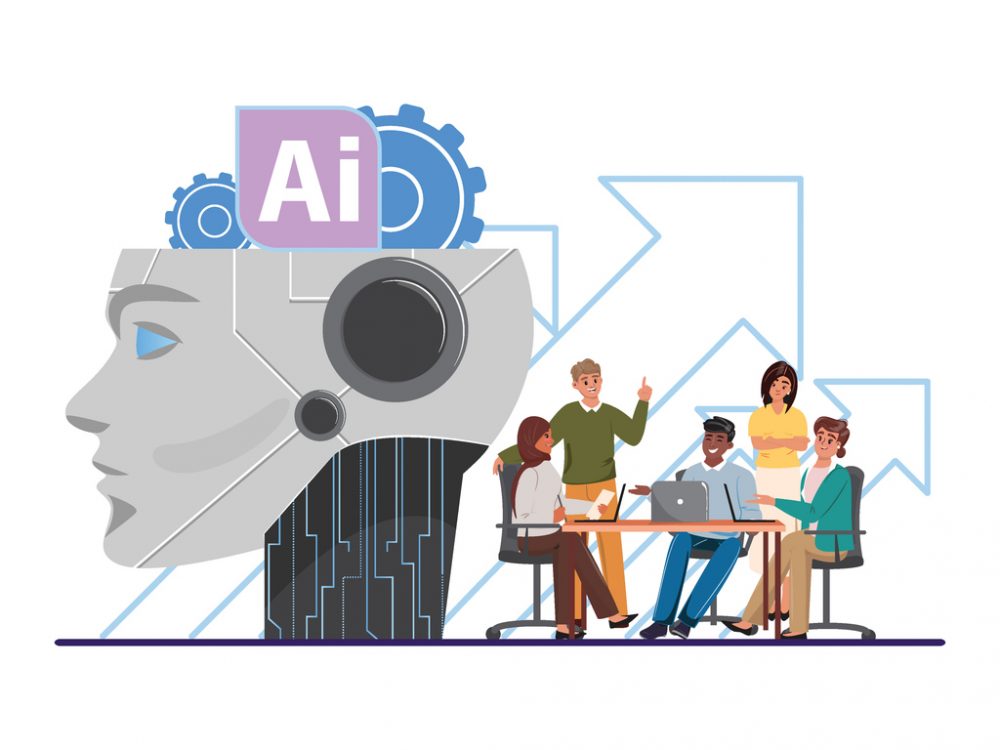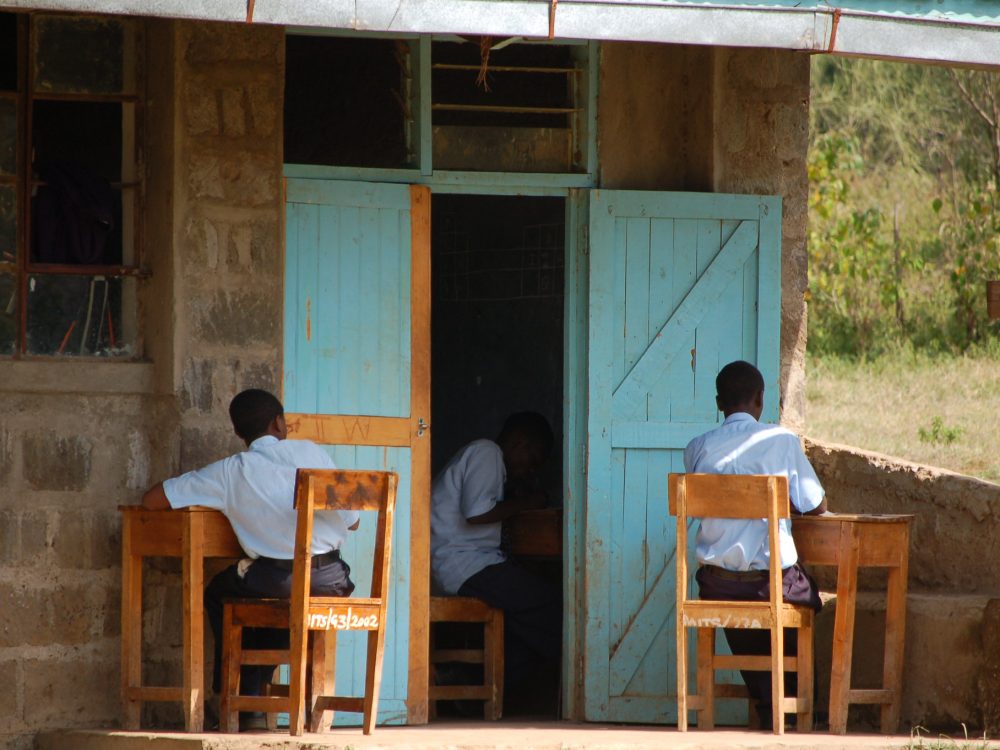Raising Awareness on World No Tobacco Day 2024: DaYTA/TCDI’s Work on Tobacco Industry Interference

This year, the World Health Organization (WHO) has designated the theme for World No Tobacco Day (WNTD) as ‘protecting children from industry interference’. The topic is more timely than ever, particularly in the African context that Development Gateway: An IREX Venture (DG) operates in through the Data on Youth and Tobacco in Africa (DaYTA) program and the Tobacco Control Data Initiative (TCDI).
For one, African countries are home to an extremely youthful populace. In Nigeria, over 50 percent of the population is under the age of 18, while in the Democratic Republic of the Congo (DRC), over 60 percent of the population is under the age of 24.
Over the years, the tobacco industry in Africa has successfully thwarted legal and institutional measures to combat its interference through a creative suite of tactics. The historical deception surrounding the tobacco industry’s representation of smoking’s adverse public health impacts has diminished its credibility amongst policymakers and civil society. As a result, the industry players have reverted to the use of front groups (i.e., manufacturers, media/PR firms, farmers associations, etc.), exploitation of public opinion, aggressive lobbying, and conflicts of interest to gain influence and repair its social image in the public eye.
Through the DaYTA program, DG is gathering primary data on tobacco use rates and trends among 10-17-year-olds in Kenya, Nigeria, and the DRC. This research will include new and emerging nicotine and tobacco products, such as electronic nicotine and non-nicotine delivery systems and heated tobacco products. Additional data gaps the DaYTA program seeks to fill include the socio-behavioral influences motivating minors to initiate tobacco use, as well as the nature of youth interactions with tobacco industry marketing.
In the DRC context, having data on prevalence is especially crucial. Presently, the only youth prevalence data available comes from the Global Youth Tobacco Survey (GYTS), conducted in 2008. In addition, this dataset is limited to in-school youth in urban areas, excluding two major demographics: out-of-school and rural youth.
Through the TCDI program’s ongoing comprehensive work filling tobacco data gaps in six countries, DG has enabled tobacco control stakeholders to combat tobacco industry interference using legislative and regulatory mechanisms. For example, during a recent meeting held in the DRC, tobacco control stakeholders from the WHO, civil society organizations, and various departments of the Ministry of Health (MoH) reiterated the need to utilize results from TCDI’s primary research on illicit trade, to support efforts to ratify the Protocol for the Elimination of Illicit Tobacco Trade in the DRC parliament. Notably, in 2023, then Prime Minister, Sama Lukonde, issued a ministerial decree (040) banning smoking in public places.
The tobacco industry has devised and deployed a number of creative strategies to target young people–advertising near schools and playgrounds, giving away products for free, and selling appealing flavors in new and emerging tobacco products. During the DaYTA program’s rapid assessment in the DRC, stakeholders explained that one of the ways the tobacco industry captures children’s attention is by leveraging the use of toys and sweets. Specifically, they indirectly advertise near schools by selling candy mimicking the appearance of a cigarette, including the names and packaging of major cigarette brands. This subliminal messaging may lead children to become curious about real tobacco products, encouraging consumption later in life.

Since the TCDI program began in 2019, the number of African countries participating in the Global Tobacco Industry Interference Survey has steadily increased–from a mere 5 countries in 2019 to 20 in 2023. This survey details how governments are responding to tobacco industry interference and how closely governments are adhering to the requirements stipulated by the WHO’s Framework Convention on Tobacco Control (FCTC).
The research and knowledge base stemming from the TCDI program has highlighted a host of recommendations to tobacco control stakeholders on how to address the industry interference, including but not limited to:
- Require transparency from the tobacco industry. Ensure the public has access to tobacco industry information, such as disclosures. This facilitates openness and accountability.
- Establish a provision of standards or code of conduct to regulate interactions between public officials and the tobacco industry. For instance, an official or state employee should not accept gifts or services, in cash or in-kind, from the tobacco industry. Moreover, governments should not accept, support, or endorse any voluntary code of conduct put forth by the tobacco industry in place of legally binding tobacco control measures.
- Reject any and all partnerships with the tobacco industry, especially when it involves the industry attempting to position itself as a socially responsible stakeholder through engagement in corporate social responsibility activities.
- Enforce Monitoring & Enforcement mechanisms such as penal sanctions and whistleblower policies.
- Avoid granting preferential business treatment to the tobacco industry.
As youth represent one of the most vulnerable populations being targeted by aggressive marketing of retail nicotine and tobacco products, it is imperative that interventions to combat tobacco industry interference can be pursued and implemented effectively. The six TCDI focus-country dashboards remain an excellent resource for stakeholders to expose lies perpetuated by the tobacco industry. For example, in many African countries, the stakeholders claim that tobacco control laws are unconstitutional or infringe on international trade and investment agreements. This is categorically false, as the WHO FCTC represents a legal basis for the policies being challenged, as there exists an international consensus on the adverse effects of tobacco use.
On this year’s World No Tobacco Day, DG is more cognizant than ever of the importance and impact of our tobacco control portfolio. Our longstanding efforts to equip policymakers, civil society, and the general public with access to timely and relevant data aids in facilitating sound decision-making, bolstering public trust, and creating opportunities for youth participation. Access to timely, accurate, and context-specific data on adolescent tobacco use is essential for cementing a robust tobacco control framework, one that can proactively combat tobacco industry interference, particularly in policymaking processes.
Share
Recent Posts

Beyond Kigali: Where Does Africa Go from Here with AI?
As governments, funders, entrepreneurs, and technology leaders rally around the AI moment and move towards actions, at Development Gateway, we are asking a different set of questions: Where is the data, and what is the quality of the data behind the algorithms? How will legacy government systems feed AI tools with fresh and usable data? Are Government ministries resourced to govern and trust the AI tools that they are being encouraged to adopt?

Shared Struggles, Shared Solutions: Education and Cross-Sector Data Use Insights
This blog draws on DG’s experience in climate, health, aid management, and agriculture to explore connections between the challenges of data collection, data hosting, and data governance across different sectors and what the solutions to overcoming them can teach us about strengthening education data systems.

Economic Toll of Tobacco-Related Diseases in Kenya: New Research Findings
Development Gateway: An IREX Venture (DG) is pleased to announce the publication of a research manuscript on the Economic Costs of Tobacco-Related Illnesses in Kenya. This research was carried out as part of the Tobacco Control Data Initiative (TCDI) activities in Kenya and is part of a broader report on Morbidity and Mortality from Tobacco Use in Kenya.